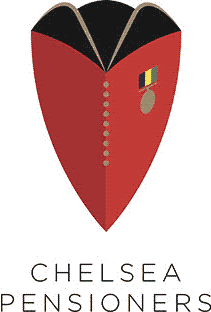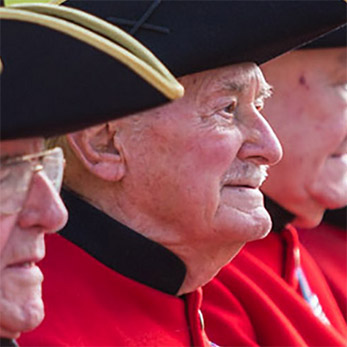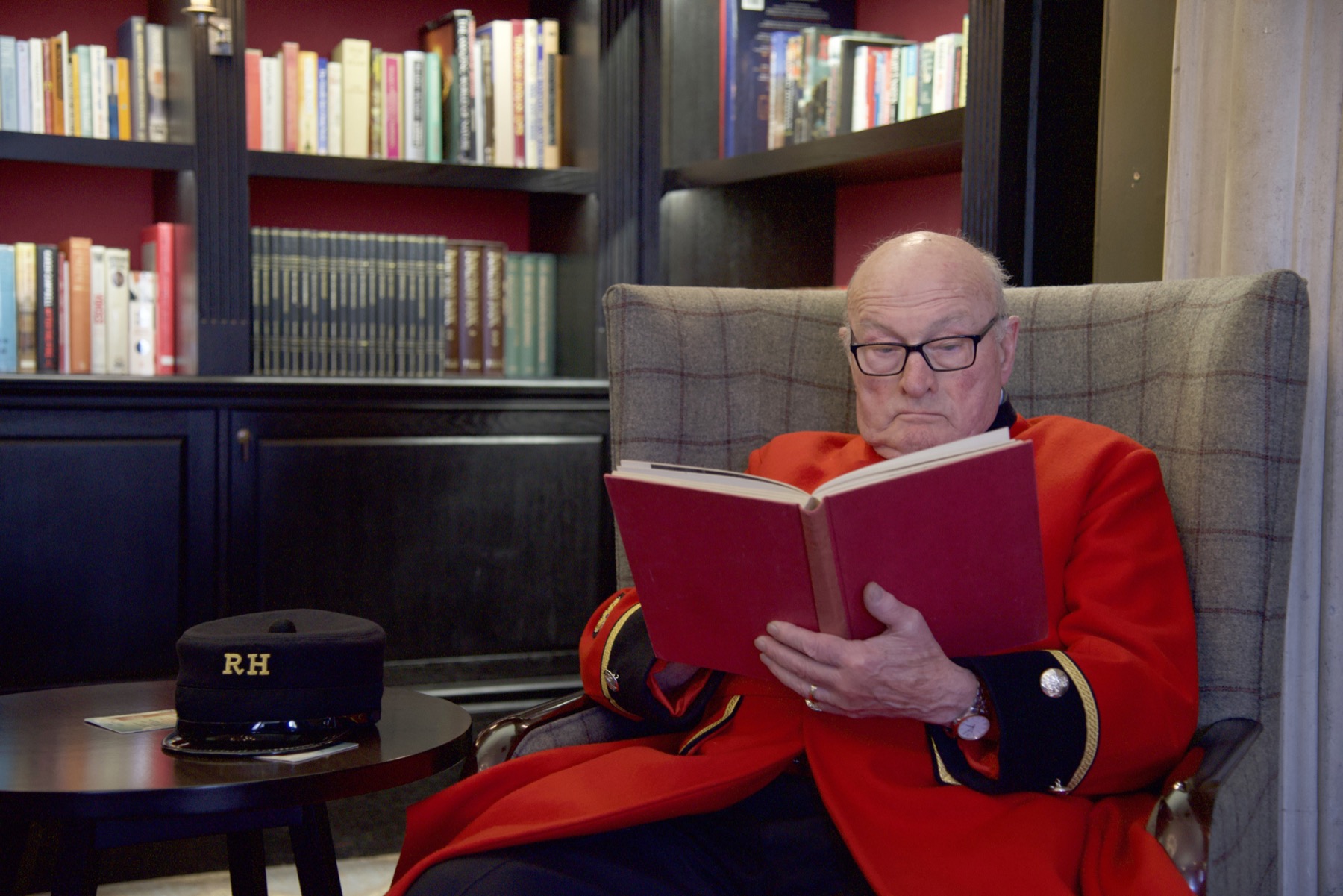
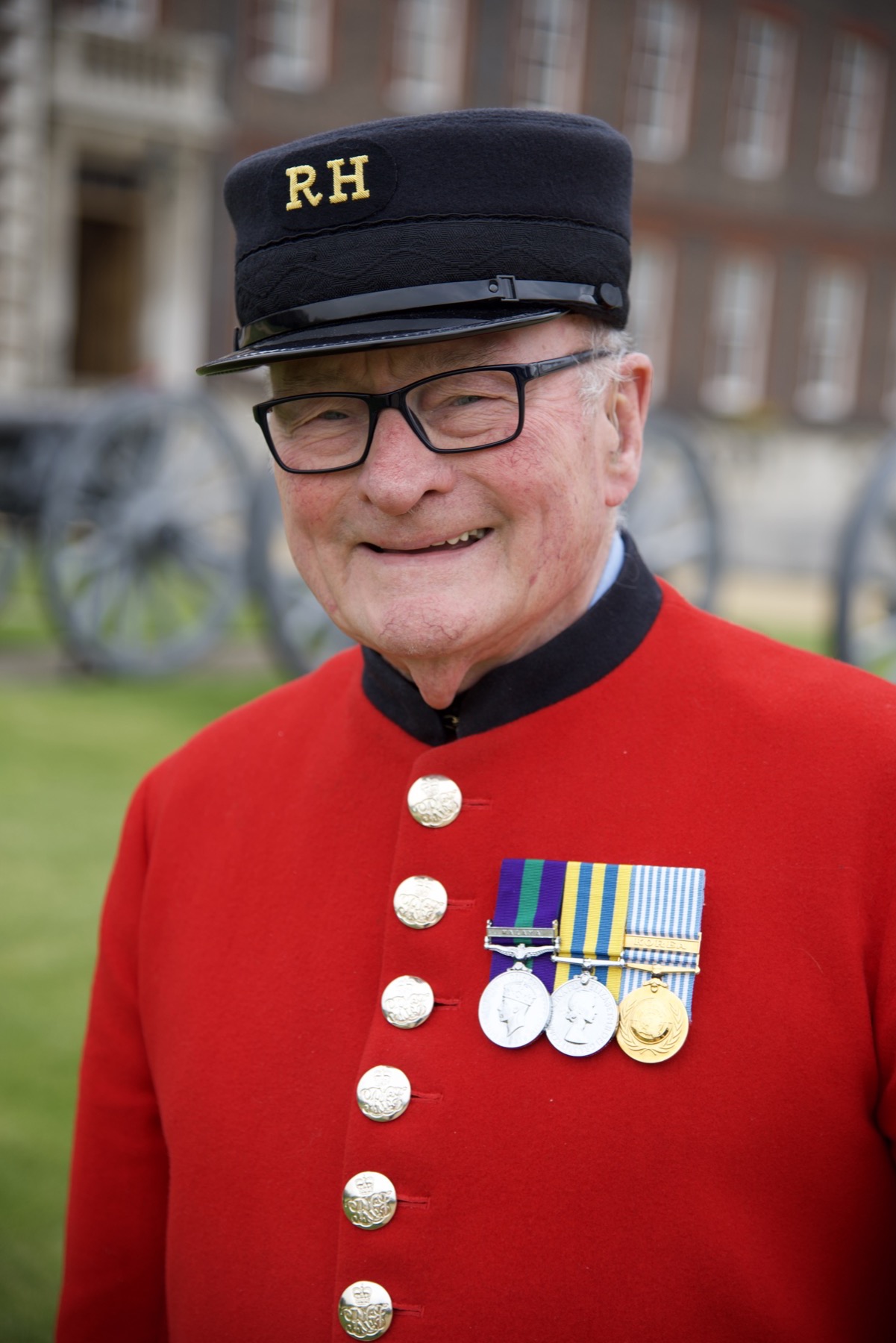
“No matter what I sing, I’m singing to her, or one of my family. That’s what makes it emotional” he says.
In the months that followed Joan’s death, music helped Colin to cope:
“Without music, I don’t know what would have happened. I was still performing in the five months between losing her and coming here. It was sometimes very difficult, I’d be performing with tears in my eyes, because the songs reminded me of her. We were married for 66 years. She died in my arms.”
Love and The Lancashire
Colin met Joan when she was 18 and he was 19.
“It was 1949 and I’d just come back from serving in Malaya. I was posted to County Durham where I met this pretty little brunette at a camp dance. We’d only been married about two weeks when I was sent to Korea. I didn’t see her for another two years.”
During their years apart, music continued to be a key part of Colin’s life, as it had done since he first found he could sing when he joined the church choir as a boy. On the way to Korea, he took part in concerts organised by Major Andrews on his troop ship, The Lancashire. He recalls how he was recruited to entertain the troops during a lull in the fighting:
“The brigadier asked Major Andrews ,who organised the concerts, to go round and beg for our services. My job was Observation Post Assistant and he arrived and asked my captain to release me.”
At first, the captain refused, but then said he did fancy a certain fur hat that some officers had as a novelty.
“Major Andrews said ‘OK, you can have a hat, but we’ll have Thackery as an exchange’. So the captain got his hat and I was released to go to the concert party!”
The concert party was made up of around 10 men, from pianists to comedians. Colin played the drums and sang.
“I met a Lance Corporal called Terry Parsons, of the Royal Army Service Corps and sang there with him. He later became famous as Matt Monro.”
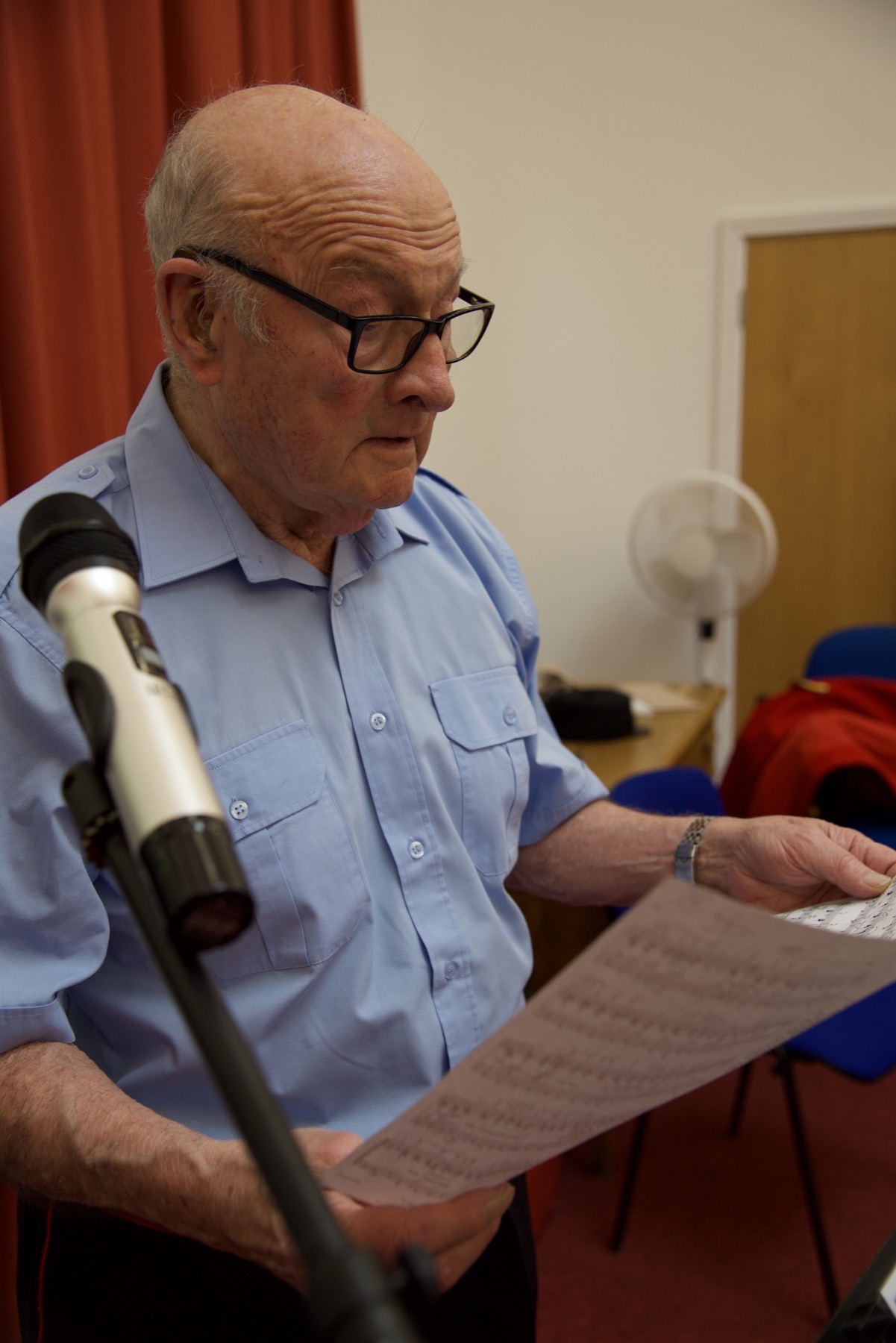
“He said ‘It’s about time you did something, because you won’t have your voice forever. What about Britain’s Got Talent?”
“He’s a great mentor of mine and a smashing guy. He was 30 years in Army music and finished up as director of music at the Irish Guards. My voice coach is a lovely lady. At one point she said: ‘Stop standing like a soldier!’ and I said ‘I was a soldier’!”
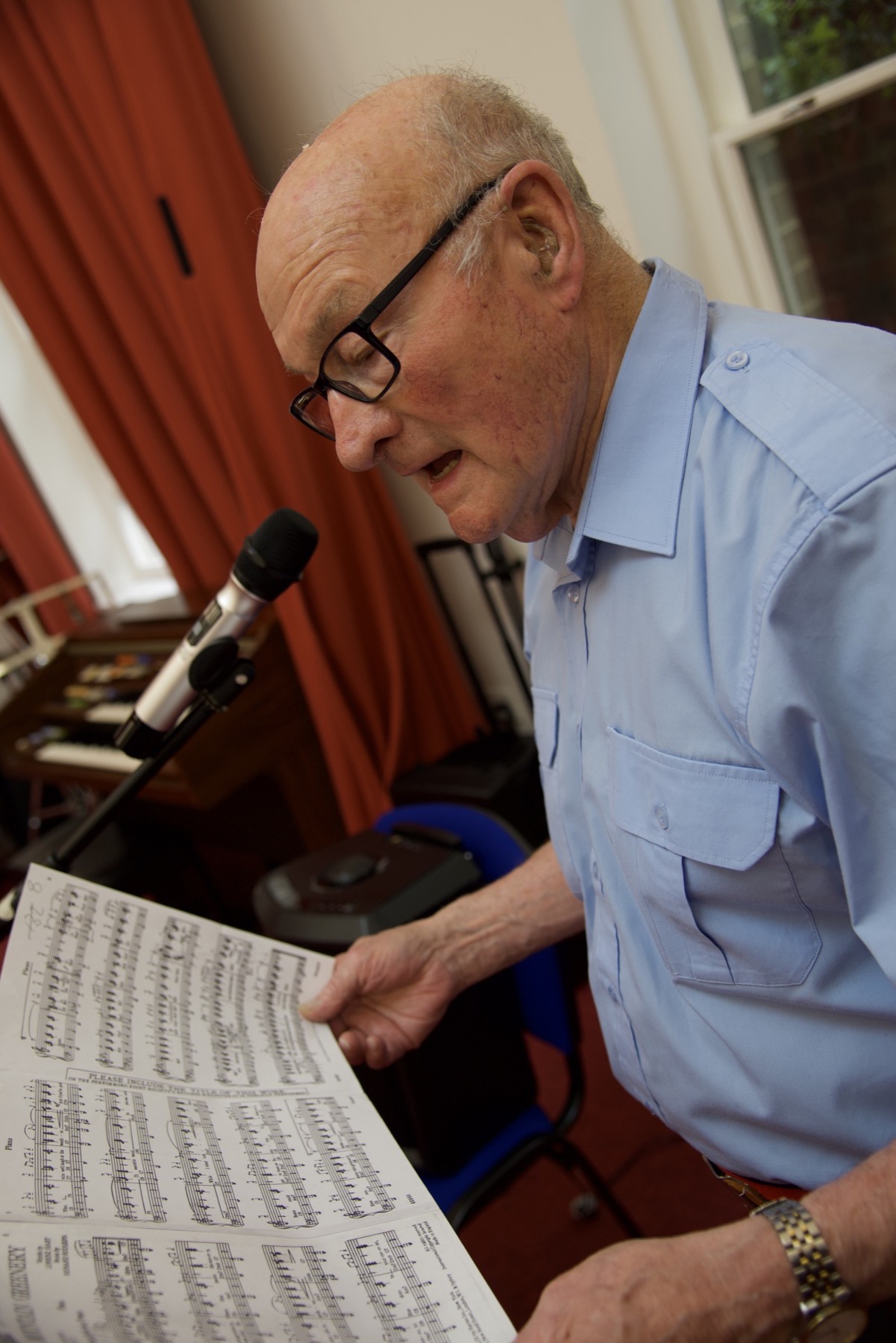
“The ultimate would be to be invited to sing before a member of the Royal family. If I could sing to the Queen, I’d die happy. And if I win a nice bunch of money, I plan to give a donation to the Royal Hospital. They want to pay for a new activities centre. I’d love to think I’d provided most of the money for that.”
“One of the joys for me is to sing every week in the dementia ward. It gets a very good reception. There are people who don’t talk to anyone, but they’ll sing. Music still helps me to cope. When I get morose, I just get the key to the band room and sing. Music gives me a way to express my emotions, particularly about Joan. Former soldiers and men in general don’t necessarily find that easy.”
